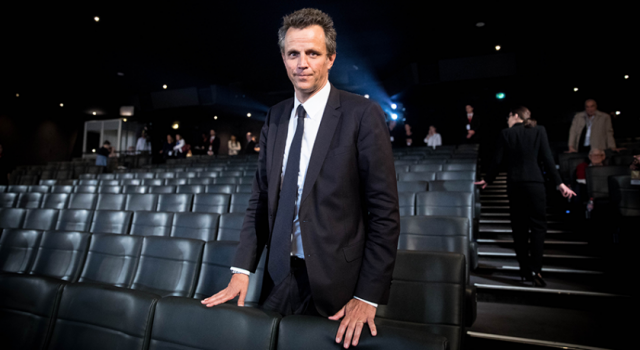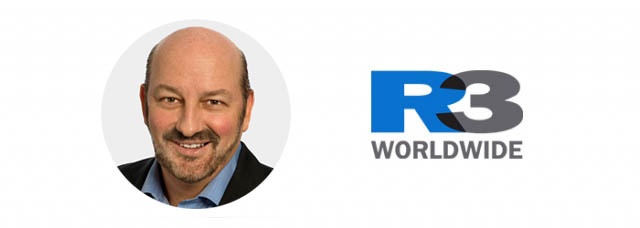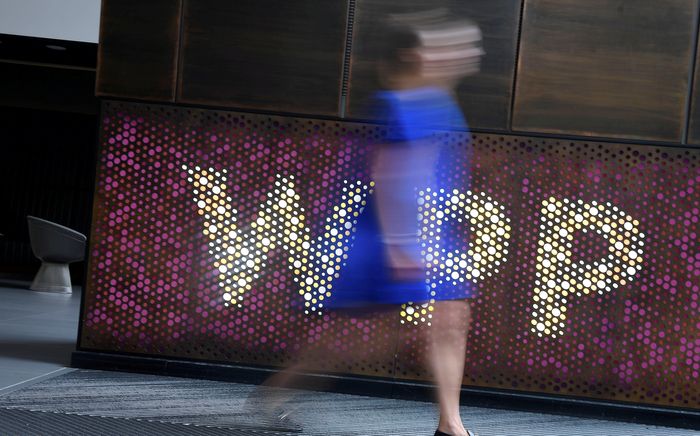
Many call the move ‘a stunt’ but predict Sadoun will follow through
“Stop the presses: Publicis Groupe launches an intranet … in 2018. How will they attract and retain top talent? With a Siri?” With a bot named Marcel, apparently.
That’s one longtime industry consultant’s take on what has, so far, been the biggest news of the 2017 Cannes Lions Festival. Two days ago, Publicis Groupe CEO and chairman Arthur Sadoun announced that his network would be foregoing all awards, trade shows and other paid promotional efforts for more than a year while developing Marcel, an AI-powered “professional assistant” that it plans to launch next June at the 2018 VivaTech conference in Paris.
Sadoun’s statement stunned the trade press and many Publicis employees. According to a senior Publicis creative, Sadoun briefed his own agencies for the first time this afternoon in Cannes after leaders spent two days grumbling about how the announcement could have been handled with greater sensitivity to the many who will be directly affected.
Multiple parties called the news “a publicity stunt,” noting the irony of announcing plans to forego paid promotions during a Cannes Festival in which Publicis Groupe trails its fellow holding companies. Several also questioned Sadoun’s claim that the purpose of the move was to shift resources toward Marcel, especially given the fact that an internal memo from the head of the company’s financial services division named “2.5 percent cost synergies for 2018” as the driving factor behind the decision.
“Make no mistake, this is purely about saving money in 2018 as growth has slowed to a crawl,” wrote one Publicis executive. “The money saved from award shows isn’t going to fund [Marcel]. It’s going to the bottom line.”
Others note that the amount of money Publicis will purportedly save by sitting out next year’s Cannes festival is considerably less than the annual salary of an executive like Sadoun (who will earn $6 million in 2017).
So what does this mean for the thousands of creatives working within the global Publicis Groupe network?
A prominent global chief creative officer who spoke to Adweek on condition of anonymity agreed with the general consensus that the ad industry has too many awards shows, describing them as “expensive and out of hand.” But he still argued that such events are of crucial importance to agencies that use them to stay competitive in terms of hiring and retaining top creative talent. Employees also see awards as one of the few tools they can use to negotiate raises and advance their own careers.
Several other top creatives agreed.
“The first thing that came to mind was: This is going to hurt recruitment,” said Jeff Goodby of Goodby Silverstein & Partners, the only agency leader who agreed to discuss the matter on the record for this story. “If you don’t win awards, people are less likely to want to work at your place. It’s the only way we have to keep score in the creative department.”
Creatives who work at Publicis and other networks have largely responded with anger and frustration. A group of Leo Burnett Chicago employees went so far as to place a sheet reading “Marcel” over the name of the agency’s founder outside the entrance to its flagship office in an act of protest. “Creatives are confused and concerned,” said one Leo Burnett staffer who questioned whether artificial intelligence would really help solve clients’ problems and called the announcement “tone-deaf and dehumanizing.”
“No one in our building can answer our questions,” wrote another Publicis creative, adding that this lack of communications was “not exactly a morale booster.”
On the business side, Cannes will not be the only event affected by Sadoun’s decision—assuming Publicis makes good on its promises. It remains to be seen whether network executives will attend tent-pole events such as the 4A’s Transformation and the Association of National Advertisers’ Masters of Marketing.
A representative for the ANA declined to comment for this story, and the 4A’s has not yet responded to a related email. Another Publicis employee expressed concern over the potential loss of business networking opportunities at the many events across Europe that Publicis executives will supposedly skip over the next year. “We are already strategizing on how to ‘protect’ our brands from competitors,” the source wrote, adding, “Of course other holding companies and consultancies will be angling to network with clients at Dmexco and CES and Mobile World Congress. It will be a lot of work to defend business this way. Who cares about Marcel?”
Despite these largely negative sentiments, some executives positioned Sadoun’s announcement as an overdue response to a tradition that grows less relevant by the year.
“It’s smart. Award shows are a waste of money and resources,” said the CEO of one prominent American creative agency, adding, “They’re a misguided way to stroke a few people’s egos. On top of that there’s a ton of work being done for the sole purpose of winning awards. And the number of shows is ridiculous too.”
This is hardly a new idea. 15 years ago, Donny Deutsch went on stage at the ANA convention and ripped awards shows like Cannes as something that only matters to “creative retards,” implying that the time spent on such events should instead be dedicated to serving clients.

And the CEO in question wasn’t the only industry leader to offer a cautiously positive appraisal of the Publicis announcement. “It’s a bold move—trying to bring to life the horizontality that other holding groups are talking about. Perhaps there’s a future to license Marcel to other industries and purposes as a future revenue stream,” said Greg Paull, founder and principal of international consultancy R3.
Paull added, “It reflects clients’ expectations. They imagine that the pieces of a holding company should work better together than the current realities are.”
Adweek also reached out to several prominent Publicis Groupe clients including P&G, Heineken, General Mills, Hewlett-Packard and T-Mobile. All either declined to comment or did not respond.
One unavoidable conclusion is that executives across the ad industry have begun to question the value of attending events like Cannes. And most parties believe that Publicis will indeed follow through on its promise, even if they question Sadoun’s given reasons for doing so.
“I can understand the urge not to enter—trust me,” said Goodby, addressing the return on investment argument. “This year, agency entries went down, and client entries went up like 60 percent.” For the second year in a row, WPP chairman Martin Sorrell also voiced some uncertainty about whether his network will continue to participate after various publications reported that the company had cut its attendee total from 1,000 to 500.
As the agency CEO put it, “I love that Publicis did this, and I hope the rest of the industry follows.”
For now, at least, one can only wait and see. A representative for the Cannes Lions festival did not respond to a request for comment.
Source: Adweek





